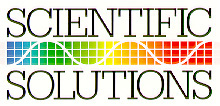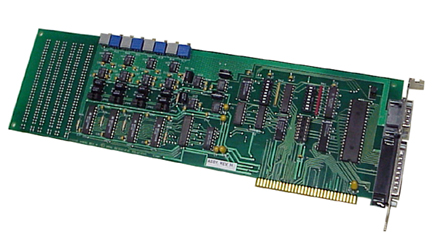
9323 Hamilton
Mentor, Ohio 44060 - USA
Tel:+1-440-357-1400
Fax:+1-440-357-1416
 |
9323 Hamilton Mentor, Ohio 44060 - USA Tel:+1-440-357-1400 Fax:+1-440-357-1416 |
Application Assistance & Reliability

Applications Include:
The DADIO was first introduced in 1981. It has been available and supported continuously ever since, and is used in many diverse applications including laboratory testing, entertainment digital audio and multi-sonic music synthesis, laser control, and factory automation.
 Product
Description
Product
DescriptionFour independent 12-bit digital to analog (DAC) converters deliver 5mA across one of four output ranges. The four DACs can change their outputs individually or simultaneously. 24 lines of TTL compatible digital I/O complete this multipurpose product. Our optional LabPac for DOS or LabPac32 for Windows software provides a flexible, multipurpose interface for customized programs using any language.
 Our
Solution Includes
Our
Solution Includes Key Features
Key Features Applications
Applications Functional
Description
Functional
DescriptionBoth DADIO functions are on one full length PC board. Interfacing to external devices is handled through standard, RF shielded D-shell connectors. Software communicates through sixteen 8-bit I/O locations (using the IN/OUT instructions). Programming information is in the manual.
 Digital-to-Analog Conversion (DAC)
Digital-to-Analog Conversion (DAC)
Four independent 12-bit digital to analog (DAC) converters source 5mA on four voltage ranges. The four voltage ranges, independently selectable (jumper blocks) for each DAC, are: 0 - 10V, 0 - 5V, ±10V, and ±5V. The analog outputs are located on a 9-pin D-shell connector. The DACs are double buffered and can change either individually or simultaneously.
 Digital
Input/Output (DIO)
Digital
Input/Output (DIO)The 24 lines of TTL compatible I/O (8255A) are addressable in two groups of eight and two groups of four (24 input, 24 output, 8 I / 160, 16 I / 80, or 12 I / 120). All outputs are latched. Simple input is unlatched while strobed input is latched. Digital I/O is programmed with four 8-bit I/O locations, one command register configures the 24 lines and three I/O locations reflect the TTL data. Each line sources 200uA or sinks 1.7mA and is located on 25-pin D-shell connector.
 Interrupts
InterruptsHardware interrupts allow the computer's processor to react to special events when they occur. The DADIO provides two software enabled sources for interrupts (the handshake strobes for digital I/O). External sources can also be used.
 Technical
Specifications
Technical
Specifications| Operating Temperature | 0º to 70º Celsius |
| Storage Temperature | -25º to +85º Celsius |
| Relative Humidity | To 95% non-condensing |
| Agency Approvals | Class A, CE-Mark |
Specifications subject to change without notice.
Scientific Solutions liability, trademarks, and export notices apply.
Copyright © 1974-2014 Scientific Solutions - All rights reserved